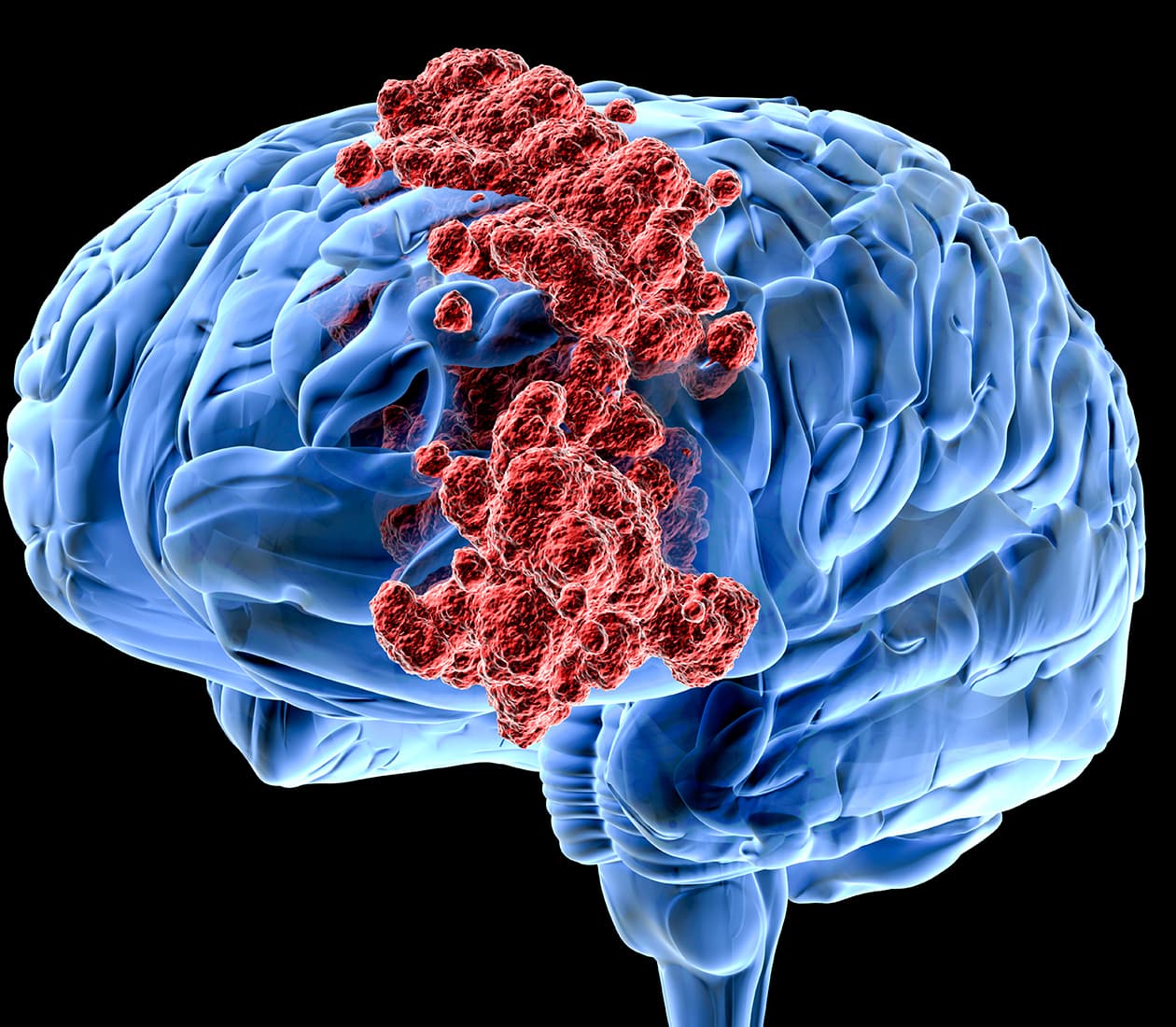
The Brain and Spinal Cord Tumors Programs at Cleveland Clinic Abu Dhabi provides specialized care and support for people diagnosed with Brain and Spinal Cord Tumors.
Cleveland Clinic Abu Dhabi’s Brain and Spinal Cord Tumor Program represents the forefront of groundbreaking care for tumors of the central nervous system (CNS). Our highly experienced team provide specialized care and support for people diagnosed with brain tumors and spinal cord tumors, offering a full range of advanced and personalized treatment options.

Our multidisciplinary team of neurosurgeons, radiation oncologists and medical oncologists work together to plan and deliver individualized care for patients with the most complex brain and spinal cord tumors.
Patients benefit from our full range of advanced diagnostic and comprehensive treatment options for non-malignant and malignant brain and spinal cord tumors.

Brain Tumors
A brain tumor is a mass formed by abnormal cells growing in the brain. Most are thought to be caused by random cell mutations that take place as we age. They can be cancerous (malignant) or non-cancerous (benign).
Primary brain tumors are growths that start in the brain. These types of brain tumors grow and behave differently from other cancers. They don’t usually spread outside of the brain or spinal cord to other parts of the body. They cause problems by pushing on the brain or growing into it. Symptoms of brain tumors can include headaches, seizures, weakness or difficulty speaking – the type of symptom is related to the location of the tumor in the brain.
Spinal Cord Tumors
A spine tumor is a mass formed by the growth of abnormal cells. Spine tumors can grow in the spinal cord tissue itself, the nerve roots exiting the spinal cord, the covering of the spinal cord (called the meninges), as well as the bone, cartilage and muscle. Primary tumors start in the spine. Most don’t spread outside of the nervous system. Metastatic tumors are caused by cancer that has travelled to the spine from another place in the body.
Specific types of Tumors:
Vestibular Schwannoma (Acoustic Neuroma)
These are benign tumors that originate from the Schwann cells covering the vestibular nerve, which connects the inner ear to the brain. Vestibular schwannomas can cause hearing loss, tinnitus, and dizziness.
Gliomas
These tumors arise from the glial cells in the brain or spinal cord. Gliomas can be classified into different types, such as astrocytomas, oligodendrogliomas, or glioblastomas. These types of tumor can vary in their aggressiveness, with glioblastomas being the most malignant form.
Pituitary tumors
These are tumors that develop in the pituitary gland, a small gland located at the base of the brain that is responsible for producing hormones that regulate many important functions in the body. Patients with pituitary tumors can present with headaches, visual problems, and hormonal imbalances.
Meningioma
These are tumors that arise from the meninges, the protective membranes that cover the brain and spinal cord. Meningiomas are often benign, but can compress the brain or spinal cord and cause neurological symptoms.
Metastasis
Metastasis refers to the spread of cancer cells from a primary tumor to other parts of the body. In the context of brain tumors, brain metastases occur when cancer cells from another organ (like the lung or breast) spread to the brain, forming secondary tumors.

Brain and spinal cord tumors cause many different symptoms, which can make detection difficult. Symptoms depend on tumor type, location, size, and rate of growth. Certain symptoms are quite specific because they result from damage to particular areas of the brain and spinal cord. Symptoms generally develop slowly and worsen as the tumor grows.
Symptoms of brain tumors can be varied and may include:
Common symptoms of spinal cord tumors include:

The Cleveland Clinic Abu Dhabi Brain and Spinal Cord Tumor Program offers the latest diagnostic and treatment options for patients with cancerous or non-cancerous tumors of the brain and spinal cord.
Your doctor will discuss with you your best treatment options, taking into consideration the location, size, growth and type of tumor you have. All patient cases are reviewed by our expert physicians from our brain and spine tumor board, to formulate the most effective treatment plan.
Brain tumors can be complex to diagnose. If you are experiencing symptoms, your doctor will discuss your symptoms and medical history in detail, then perform a neurological examination. Further diagnostic testing may include brain MRIs or CT scans and other specialized tests.
Treatment will depend on the individual patient, and the location, size and type of brain tumor. A combination of therapies can be used to treat tumors, including surgery, radiation (focused beams of radiation to destroy the tumor), chemotherapy, immunotherapy and targeted therapy. The goals of brain tumor treatment are to relieve the patient’s symptoms, maintain or restore neurologic function and to improve the quality and length of the patient’s life.
If symptoms are present, your doctor will discuss your symptoms and medical history in detail, then perform a neurological examination. Further diagnostic testing may include spinal MRIs or CT scans and other specialized tests.
Treatment will depend on the individual patient, and the location, size and type of tumor. The goals of spinal tumor treatment are to relieve pain, maintain or restore the function of the spinal cord or nerves and improve the quality and length of the patient’s life.
We offer important technological advancements in the diagnosis of brain and spinal cord tumors, including:
Learn more about the advanced diagnostic techniques available to patients with brain and spinal cord tumors here.
Advanced Treatment Options
Advanced treatments available at the Neurological Cancer Program include:
Learn more about the advanced options available to treat brain tumors here.

Our Brain and Spinal Cord Tumor Program doctors have extensive expertise in the field of cancers of the central nervous system. The team provides excellent Patients First medical care based on current US and international guidelines. Caregivers involved in patient care for this program include:

Speak with our Contact Center for assistance
Request an Appointment 800 8 2223 International Patients